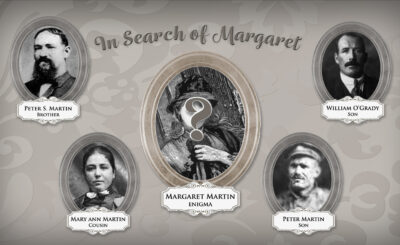So you want to write a story about a family member—or maybe even yourself! How do you get started?
Writing is an exercise destined to make you feel inadequate, stupid, illiterate, and foolish. Believe it or not, everybody feels that way, no matter how much he or she has written. Writing, if it’s going to be any good, must come from an open heart and that makes you feel defenseless and supremely vulnerable. So get over it already!
Because here’s the truth: anything you write will in time be treasured and revered; what you don’t write gets nothing, nada, zip.
I would (practically) kill for something a great-grandparent had written. I weep over the fragments of my ancestors that have survived: a hymnal, silver spoons, a crocheted wall hanging, a few signatures, a quote from a newspaper, a court deposition—transcribed by a clerk—capturing an ancestor’s words.
The important thing is that you start writing the stories, telling them as only you can!
But everybody wants to give best efforts. So here, to help you, are a few suggestions on how to make your story crisp, appealing, and relevant to your reader.
Things to keep in mind as you write, write, write!
-
Decide What Story You Want to Tell.
- Find a hook, a way to draw in the reader.
- What is the point? What are you trying to teach?
- Focus. Include only the parts that further the story.
See “Christmas in the Workhouse”
-
Find Your Voice.
- What is your strength as a storyteller? Humor? Description? Imagination? Keep reminding yourself of your strengths.
- Write about what interests you. Your passion will make it interesting to others.
-
Remember Your Audience.
- Write to the reading level of your anticipated reader. What is the target attention span?
- Simple words are better than fancy ones.
- Above all, don’t be boring!
-
Find the concrete details.
- Who, what, where, when, why, and how.
- Make sure your reader knows where you found sources. Use references appropriate to your medium.
See “Find the Details: William Martin Goes Yukon!”
-
Find the Human Element.
- How did they feel? What did they fear? How do you know that?
- How can you make the event personal to the reader but not misrepresent the past?
See “Searching for Grandmother”
Obviously there is much more to be said about writing well, but these four points are a good place to start.
Now get writing already!







